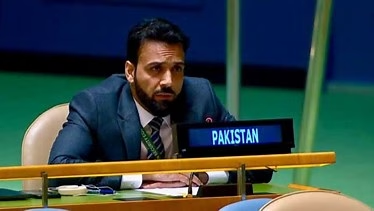Washington, DC, Pakistan gets loan approval from IMF, The International Monetary Fund (IMF) Executive Board conducted the combined seventh and eighth evaluations of Pakistan’s Extended Arrangement under the Extended Fund Facility (EFF) on Monday.
The Board’s resolution enables for an immediate release of USD 894 million (about $1.1 billion), increasing the total budget support expenditures under the agreement to approximately $3.9 billion. On July 3, 2019, the Executive Board authorised the EFF for SDR 4,268 million (about $6 billion at the time of approval, or 210 percent of quota).
To support programme execution and meet greater funding requirements in FY23, as well as stimulate new financing, the IMF Board agreed an extension of the EFF through end-June 2023, rephasing and augmenting access by SDR720 million, bringing total EFF access to almost $6.5 billion.
The Executive Board also granted Pakistan’s request for waivers from performance standards noncompliance.
The IMF said in a statement that Pakistan is at a crossroads economically. Domestic demand reached unsustainable levels as a result of a difficult external environment combined with procyclical domestic measures.
The ensuing economic overheating resulted in huge fiscal and external imbalances in FY22, as well as increasing inflation and depleting reserve buffers.
The programme aims to address domestic and external imbalances, as well as to ensure fiscal discipline and debt sustainability, while also protecting social spending, ensuring monetary and financial stability, maintaining a market-determined exchange rate, and rebuilding external buffers, according to the program’s description.
Read Also: The government assures the IMF that tax credits would not be granted without NA approval.
Following the Board’s discussion, Antoinette Sayeh, Deputy Managing Director and Acting Chair, stated in a statement,
“Pakistan’s economy has been buffeted by adverse external conditions, including spillovers from the Ukraine war, and domestic challenges, including stimulative policies that have resulted in uneven and unbalanced growth.”
To recover macroeconomic stability, resolve imbalances, and create the groundwork for equitable and sustainable development, consistent execution of corrective policies and reforms remains critical.”
“The authorities’ intention to create a minor budget surplus in FY2023 is a good step toward reducing fiscal and external pressures and increasing confidence,” she added.
Containing current expenditure and mobilising tax collections are essential for making room for much-needed social protection and ensuring the public debt’s long-term viability.
Efforts to enhance the energy sector’s profitability and prevent excessive losses, such as sticking to anticipated increases in fuel taxes and energy prices, are also critical.
More measures to decrease poverty and safeguard the most vulnerable people, particularly in the present high-inflation climate, are needed.”
“Tightening monetary conditions via higher policy rates was an important step in controlling inflation.”
Continued restrictive monetary policy would assist to lower inflation and manage external imbalances in the future. Maintaining proactive and data-driven monetary policy would help to achieve these goals. Simultaneously, strong monitoring of the banking system and swift action to resolve undercapitalized financial institutions would contribute to financial stability.
“Maintaining a market-determined currency rate is critical for mitigating external shocks, maintaining competitiveness, and rebuilding foreign reserves,” she noted.
“Speeding up structural changes to enhance governance, especially of state-owned firms, and improve the business climate,” added Sayeh.
Reforms that provide a level playing field for business, investment, and trade are critical for job creation and the development of a robust private sector.”
In July, the IMF struck a staff-level agreement with Pakistan, clearing the way for a $1.17 billion loan, subject to approval by the IMF’s Executive Board.











